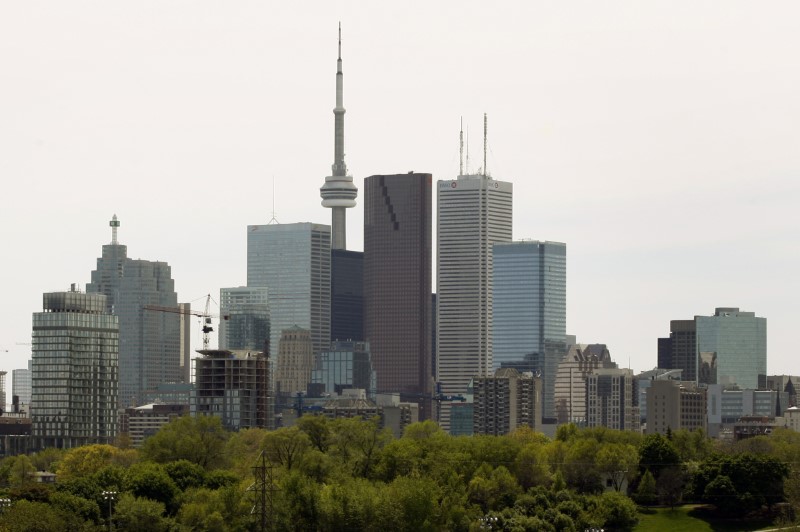By Ketki Saxena
Investing.com -- Toronto topped the list of cities with a housing bubble, according to the UBS Global Real Estate Bubble Index and report on cities with the most elevated risks in the housing market. Toronto was closely followed by Frankfurt, while Amsterdam and Tokyo also saw their risk levels increase.
The report cites the unsustainable housing boom in the Toronto, and declining housing affordability as key reasons it forecasts a correction. In Toronto, benchmark home prices jumped 71% in the three years through February, data from the Canadian Real Estate Association show. Since then, they’ve fallen 8.6%,
The report points to “An urban housing shortage amid strong population growth and falling mortgage rates” as a key component of the unsustainable housing boom so far, as well as “High investment demand has also added significantly to the price increases.”
The bank also points to high liquidity and cheap debt during the pandemic playing its part, noting that “up-sizing during the pandemic on the back of strong income growth has done its part in pushing up demand. Households have also been leveraging up at the fastest pace since before the financial crisis.”
Looking ahead, the report states that “significant price corrections are to be expected in the coming quarters”, as we witness “ the global owner-occupied housing boom finally under pressure”.
The Canadian housing market has recently come under pressure from the Bank of Canada’s rate hikes. The Canadian central bank has raised rates from 0.25% earlier this year to 3.25%.. Variable-rate mortgages at Canadian banks, which were at less than 2% at the beginning of the year, are now over 5%. Another 100 bp of rate hikes is expected from the Canadian central bank before year’s end.
The UBS report points to the BoC’s recent rate hike spree as the catalyst for a correction, and further declining housing affordability.
“In such overheated markets, with already very stretched housing affordability, the recent rate hikes by the Bank of Canada could be the last straw that broke the camel’s back. New buyers and owners during mortgage renegotiations not only need to pay higher interest rates but are also required to provide more income to qualify for a mortgage.
The report also points to Vancouver as a high risk-city for a housing correction.
